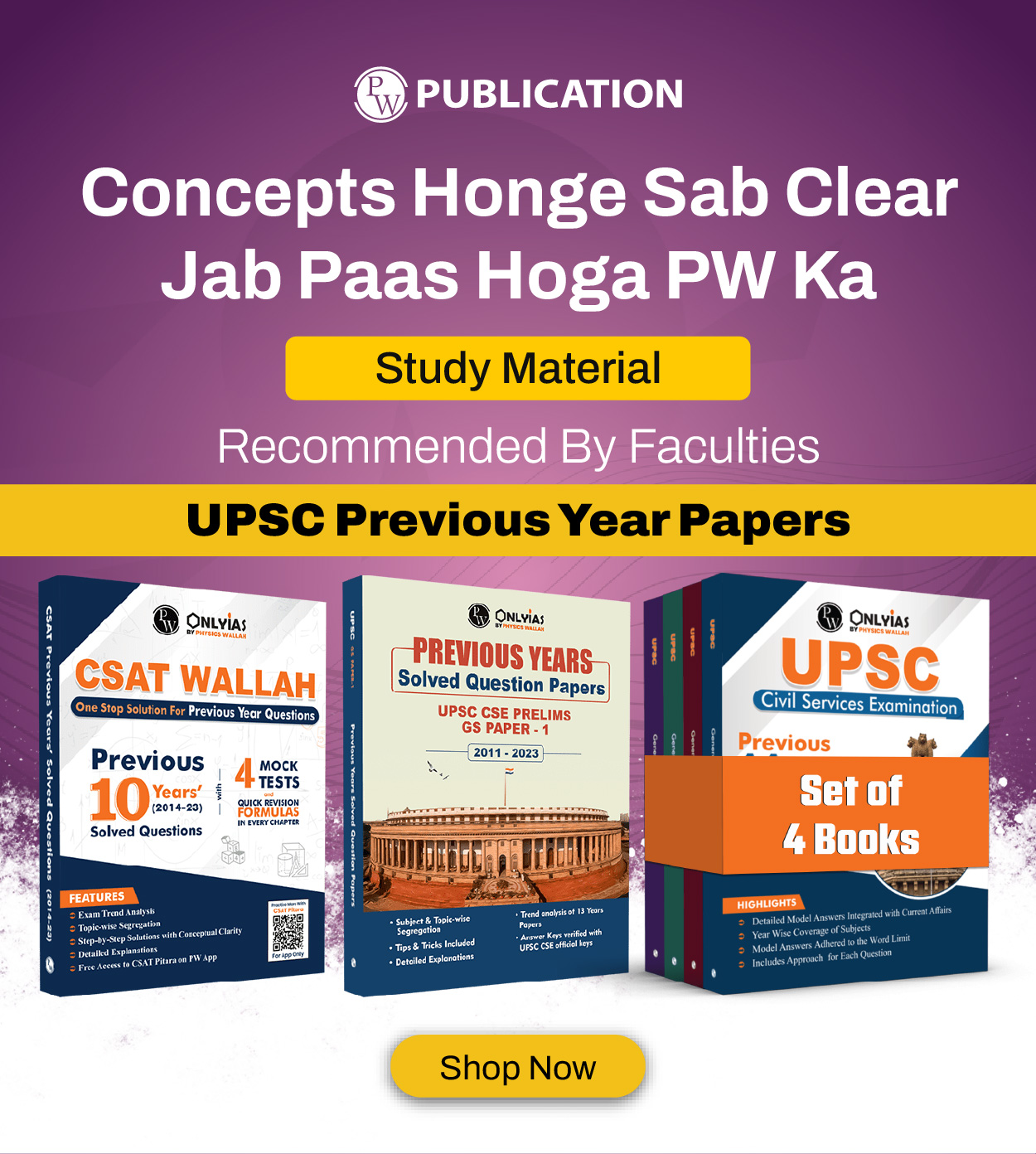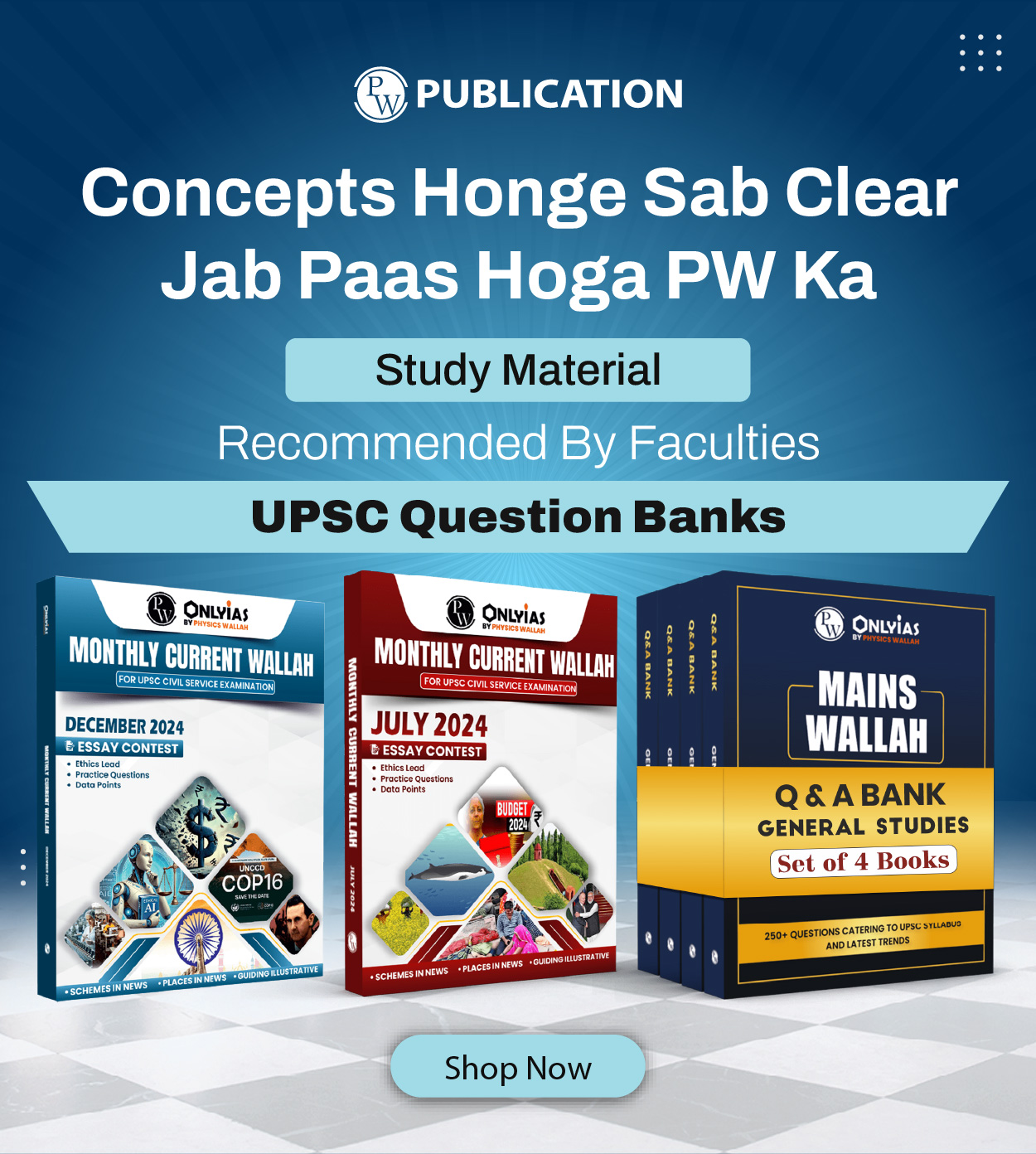UPSC GS Preparation Study Tips and Strategic

UPSC GS Preparation:- The UPSC Civil Services Examination is the top of India's competitive examinations, attracting a large number of candidates from around the country each year. However, achieving one's IAS goals in the face of such a crowded field is a difficult task.
Beyond what the UPSC syllabus covers, there's uncertainty that can worry candidates.
However, UPSC General Studies is a key part of the UPSC Civil Services Exam, covering a wide range of subjects like history, geography, politics, economics, science, and current affairs. Studying for UPSC GS gives candidates important knowledge and helps them think critically and develop a broad perspective, which is essential for a career in civil services. Get the necessary UPSC GS Preparation tips and strategies from the below article.
UPSC General Studies Syllabus for Prelims
The UPSC General Studies Syllabus for Prelims is the first stage of the Civil Services Examination, testing a candidate's knowledge across various subjects. It covers history, geography, polity, economics, science, and current affairs. Prelims Paper I assesses general awareness, while Paper II evaluates skills like comprehension, logical reasoning, and basic numeracy.
|
UPSC GS Syllabus Prelims Paper I |
UPSC GS Syllabus Prelims Paper II |
|
General Science |
General mental ability |
|
General Issues on Climate Change, Biodiversity, and Environmental Biology |
Decision-making and problem-solving |
|
Economic and Social Development |
Logical reasoning and analytical ability |
|
Indian Polity and Governance |
Interpersonal skills |
|
Indian Geography |
Comprehension |
|
World Geography |
Basic numeracy (Class 10 level): Data interpretation, Orders of magnitude, Numbers, and their relations. |
|
Indian History |
— |
|
Indian National Movement |
— |
|
Current events of national and international importance |
— |
UPSC General Studies Syllabus for Mains
Check out the UPSC General Studies Syllabus for Mains below:-
Topics Covered |
|
|
Paper II |
|
|
Geography of the World and Society:- Salient features of the world’s physical geography, Important Geophysical phenomena, Distribution of key natural resources, Effects of globalization. |
|
|
History of the World and Society:- Socialism, capitalism, communism, decolonization, redraw of national boundaries, colonization, industrial revolution, world wars. |
|
|
Indian Culture:- Architecture from ancient to modern times, Art Forms, Features of Literature. |
|
|
Indian History:- Personalities, issues during the middle of the 18th century till now, significant events, the freedom struggle, Post-independence consolidation, and Reorganization of India after Independence. |
|
|
Paper III |
International Relations Social Justice: Secularism, regionalism, communalism, social empowerment. Polity Constitution Governance |
|
Paper IV |
Technology Security and Disaster Management Environment Biodiversity Economic Development |
|
Paper V |
Aptitude Integrity Ethics |
UPSC GS Preparation
-
Understanding the Syllabus:- Familiarise yourself with the detailed syllabus for both UPSC Prelims and Mains. The Prelims GS Paper I covers topics like history, geography, polity, economics, science, and current affairs. GS Paper II (CSAT) tests comprehension, logical reasoning, and basic numeracy. For Mains, GS Papers II to V include topics such as world history, Indian culture, social justice, international relations, governance, technology, ethics, and more.
-
Creating a Study Plan:- Develop a comprehensive study plan that covers all topics within the syllabus. Allocate time based on your strengths and weaknesses, ensuring you cover each subject thoroughly. Include time for revision and regular practice tests.
-
Gathering Study Materials:- Collect standard textbooks and reference materials recommended for UPSC preparation:
-
History: NCERT textbooks, "India's Struggle for Independence" by Bipan Chandra
-
Geography: NCERT textbooks, "Certificate Physical and Human Geography" by G.C. Leong
-
Polity: "Indian Polity" by M. Laxmikanth
-
Economics: NCERT textbooks, "Indian Economy" by Ramesh Singh
-
Science: NCERT textbooks, "Science and Technology" by Ravi P. Agrahari
-
Current Affairs: Newspapers like The Hindu, Yojana magazine, and online portals
-
Staying Updated with Current Affairs:- Regularly read newspapers, watch news channels, and follow reliable online sources to stay updated on current events. Make notes on significant developments, focusing on their implications and relevance to the syllabus.
-
Practising Answer Writing:- For the main examination, practice writing detailed answers. Focus on structuring your answers clearly and concisely, with a good introduction, body, and conclusion. Regular practice helps improve speed and clarity.
-
Taking Mock Tests:- Regularly take mock tests to assess your preparation level. Analyse your performance to identify weak areas and improve upon them. Mock tests also help you get accustomed to the exam pattern and time management.
-
Focusing on Revision:- Allocate time for regular revision of all topics. Use your notes and summaries to reinforce your understanding and recall important information quickly.
-
Joining Study Groups or Coaching:- Consider joining a study group or enrolling in a reputable coaching institute. Interacting with peers and mentors can provide additional insights and keep you motivated.
-
Maintaining a Balanced Routine:- Ensure a balanced routine with adequate time for rest, exercise, and hobbies to keep stress at bay and maintain overall well-being.
Books for UPSC GS
Preparing for the UPSC General Studies (GS) exam requires choosing the right books to cover the extensive syllabus efficiently. The books for UPSC GS include NCERT textbooks for foundational knowledge, "Indian Polity" by M. Laxmikanth for detailed understanding of Indian politics, "India's Struggle for Independence" by Bipan Chandra for modern history, and "Indian Economy" by Ramesh Singh for economic concepts.
Additionally, reading newspapers like The Hindu and magazines like Yojana helps stay updated with current affairs. These carefully selected resources will help aspirants cover the syllabus effectively and improve their chances of success in the UPSC exam.
Check out the resource for UPSC GS below:-
|
Product |
Description |
Original Price |
Discount Price |
|
GS + CSAT Combo Set of 24 for Civil Services Exam 2024 Latest Edition |
₹11,006 |
₹5,503 |
|
|
GS Combo Set of 21 for Civil Services Exam 2024 Latest Edition |
₹10,079 |
₹5,040 |
|
|
Complete History Combo Set of 6 for Civil Services Exam 2024 Latest Edition |
₹2,624 |
₹1,312 |
|
|
PWONLYIAS UPSC Wallah Geography, Environment and Disaster Management Combo Set of 5 |
Geography, Environment and Disaster Management Combo Set of 5 for Civil Services Exam 2024 Latest Edition |
₹2,605 |
₹1,302 |
|
PWONLYIAS UPSC Wallah Polity, Governance and IR Combo Set of 4 |
Polity, Governance and IR Combo Set of 4 for Civil Services Exam 2024 Latest Edition |
₹2,046 |
₹1,023 |
|
Mains Special Combo Set of 8 Books for Civil Services Exam 2024 Latest Edition |
₹3,142 |
₹1,571 |
|
|
PWONLYIAS UPSC Wallah Economics and Social Development Combo Set of 3 Books |
Economics and Social Development Combo Set of 3 Books for Civil Services Exam 2024 Latest Edition |
₹1,477 |
₹739 |
|
CSAT Combo Set of 3 for Civil Services Exam 2024 Latest Edition |
₹927 |
₹464 |
|
|
Static Medieval India, Ancient India and Art and Culture, Modern India, Polity, Science & Technology, Economy, Environment, Geography |
₹1,249 |
₹815 |
|
|
Static Modern India, Polity, Science & Technology, Economy, Environment, Geography |
₹959 |
₹600 |
|
|
UPSC UDAAN Prelims Wallah - Static Medieval India, Ancient India and Art and Culture Set of 3 |
Static Medieval India, Ancient India and Art and Culture Set of 3 |
₹290 |
₹215 |
|
Static Medieval India, Ancient India and Art and Culture Hindi Edition |
₹290 |
₹215 |
|
|
10 Previous Years Solved Questions (2014-23) with 4 Mock Tests and Quick Revision Formulas |
₹549 |
₹439 |
|
|
Static Medieval India, Ancient India and Art and Culture, Modern India, Polity, Science & Technology, Economy, Environment, Geography (Hindi) |
₹1,249 |
₹815 |
|
|
UPSC Prelims Previous Years (2011-2023) Solved Question Papers |
Solved Question Papers for 2011-2023 |
₹449 |
₹359 |
UPSC GS Preparation FAQs
Q1. How should I start my UPSC GS preparation?
Ans. Begin with reading NCERT textbooks to build a strong foundation. Then, move on to standard reference books for each subject. Regularly read newspapers like The Hindu and magazines like Yojana for current affairs.
Q2. How important are current affairs in UPSC GS preparation?
Ans. Current affairs are crucial for both Prelims and Mains. Regularly read newspapers, follow news websites, and use monthly current affairs magazines and compilations.
Q3. How much time should I dedicate daily for UPSC GS preparation?
Ans. On average, 6-8 hours of dedicated study each day is recommended. However, the quality of study and consistency are more important than the number of hours.
Q4. Is coaching necessary for UPSC GS preparation?
Ans. Coaching is not mandatory but can be helpful for structured guidance, learning, and access to study materials. Many candidates have cleared UPSC through self-study using online resources.
Q5. What is the role of mock tests in UPSC GS preparation?
Ans. Mock tests are essential for practice, time management, and assessing your preparation level. They help in familiarising with the exam pattern and identifying weak areas.










